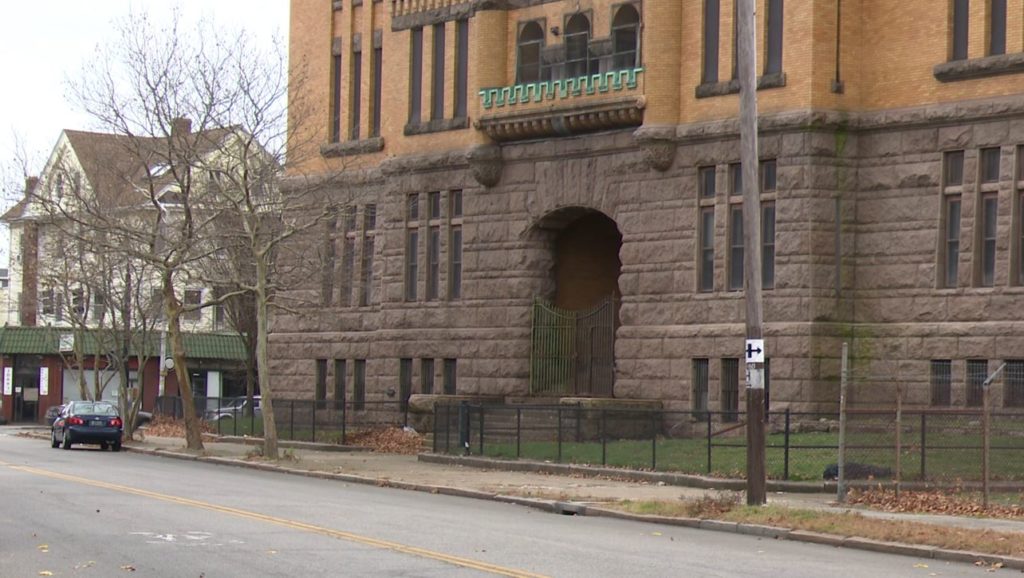PROVIDENCE, R.I. (WPRI) — Recreational marijuana has been legal to possess, use and grow since May, but legal sales begin for the first time on Thursday.
Five existing medical marijuana dispensaries will become “hybrid” stores, selling both medical and recreational cannabis on Thursday.
Aura of Rhode Island — Central Falls
Thomas C. Slater Center — Providence
Mother Earth Wellness — Pawtucket
Greenleaf Compassionate Care Center — Portsmouth
RISE Dispensary — Warwick (formerly known as Summit Compassion Center)
Only adults 21 and older can buy recreational cannabis, and it remains illegal to drive under the influence of marijuana or sell the drug outside of the licensed retailers.
Here are five things to know as Rhode Island starts selling cannabis:
You can’t smoke it everywhere
Just because you can buy marijuana on Thursday doesn’t mean you can start using it anywhere you want. Cannabis smoking and vaping is banned on school grounds and correctional facilities, plus cities and towns can choose to ban smoking in certain places. Providence, for example, added cannabis to its existing ban on cigarette smoking in public parks last month.
The new state law says landlords can also ban smoking or vaping on their properties (check your lease), but cannot stop you from eating edibles or possessing marijuana under the legal limit in your rented apartment.
Employers can ban you from using cannabis at work, but generally can’t stop you from using it outside of work, as long as you don’t show up under the influence. There are two exceptions: federal contractors can choose to ban cannabis use outside of work, and jobs that are “hazardous, dangerous or essential” to public safety such as surgeons, pilots and bus drivers are allowed to set policies prohibiting cannabis use for 24 hours prior to a shift.
Prepare to be taxed
The final price of cannabis products at the register will be quite a bit higher than the base price, as recreational sales will be taxed at a rate of 20%.
The taxes include the regular 7% sales tax, a 3% local tax and a new 10% cannabis tax.
The local tax will be for the town or city where the store is located, while the sales tax will go into the state’s general fund. The new cannabis tax will fund a new “marijuana trust fund” that will cover the costs to run the marijuana program and could also be put toward substance use prevention, law enforcement and education about the dangers of driving under the influence of cannabis.
It could take a while for new stores to open
You may have voted on a referendum earlier this month to allow cannabis stores in your community, but that doesn’t mean stores will be opening in your town anytime soon.
Outside of the existing medical dispensaries — plus a few more that were pulled from a lottery last year but haven’t opened — new retail stores won’t open until a new Cannabis Control Commission is formed and decides how to issue the licenses.
The new three-member commission, whose members haven’t been named yet, will come up with an application process, rules and regulations and figure out how to decide which applicants can open stores, up to 33 stores total. Some licenses will be set aside for “social equity” applicants.
The state has previously used a random lottery system to avoid any appearance of political favoritism, but some have called for a more merit-based system that takes the applicant’s qualifications into account.
Matt Santacroce, the interim deputy director of the Department of Business Regulation, estimates it could take 12-18 months to get new stores up and running, which would push the opening dates to 2024.
A yet-to-be-formed group will be in charge
The Cannabis Control Commission will take over control of Rhode Island’s marijuana industry, which is currently under the purview of the DBR. So who will be on it?
Gov. Dan McKee is charged with appointing the three members, who then must be confirmed by the state Senate.
McKee’s office says he will name his appointees in the new year. He does have a list of recommendations from House Speaker Joe Shekarchi to consider, but he doesn’t have to pick anyone from that list. (Shekarchi recommended Robert Jacquard, Stephen McCartney and Rachel Russell in July.)
There’s also going to be a new Cannabis Advisory Board, which will advise the new CCC on policy decisions. McKee, Shekarchi and Senate President Dominick Ruggerio all get to appoint people to the advisory board, with a focus on those with expertise in public health, substance use treatment, law enforcement and drug policy. None of the members have been appointed yet.
DBR will continue to serve as regulators, assisting the CCC to enforce the rules and inspect businesses.
Medical marijuana remains, but rules are changing
Medical patients who use cannabis for a series of conditions will continue to be able to purchase from the medical dispensaries, which are expected to have separate lines for medical and recreational customers.
Medical marijuana is taxed at a lower rate — just the 7% sales tax — and state leaders are seeking to eliminate any recreational customers who may have been using the medical program to obtain cannabis.
Starting March 1, the dispensaries will stop taking out-of-state medical cards unless the patient’s ID comes from the same state. This will stop the trend of Rhode Islanders getting online cards from states like California, where it’s easier and less expensive to obtain a medical card than Rhode Island.
Rhode Island will also stop charging fees for people to get medical marijuana cards on December 1.
H/T: www.wpri.com




